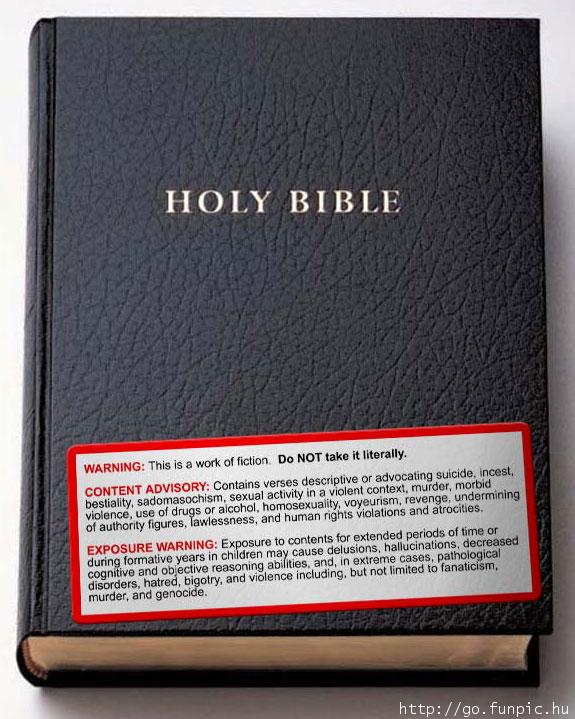
Edip Yuksel, J.D.
► 19@19.org ►
Course: Phil 122
Section:
Days/Times:
Location:
Office Hours:
Instructor: Edip Yuksel
Phone:
Email: 19@19.org
Add date:
Drop/Refund/Audit date:
Withdrawal deadline:
Final Exam date:
Last day of class:
Campus phone nu: 520 206 7314
Tutoring: http://nw.pima.edu/dmeeks/scimath/documents/tutor.pdf
Course Description:
Survey of Western Philosophy. Includes primary source readings in western philosophic areas: logic, epistemology, ethics, social/political philosophy, philosophy of religion, metaphysics, philosophy of science, and aesthetics.
Course Objectives:
- Develop the skills of attentive listening and dialog in group discussion
- Describe the principle ideas of the philosophers studied
- Analyze and critically evaluate philosophical arguments
- Construct logical arguments and identify errors in reasoning using philosophical language and terminology
- Design and support your own position on philosophical issues
- Express your thoughts clearly in both written and spoken formats
- Study the sources and nature of knowledge.
- Examine the meaning of terms God, metaphysics, mind, and matter.
- Review the classical arguments for and against the existence of God.
- Reflect on personal identity.
- Discuss freedom of will and determinism.
- Investigate new arguments for and against God and metaphysics.
Required Text:
- The Philosopher’s Way, John Chaffee
Recommended Texts:
- Philosophy of Religion, Selected Readings, Michael Peterson et al. Oxford University Press
- Faith and Reason, Paul Helm, Oxford University Press
Prerequisite: A 3.5 pound substance with active dendrites and synapses.
ADA Compliance: Pima Community College is committed to providing accommodations for qualified individuals with disabilities in a timely and effective manner. To request a reasonable accommodation, students must be registered with the campus Disabled Student Resources (DSR) office. Accommodations will be made based on eligibility determined by Disabled Student Resources. Services can be requested at any time during the semester. Requesting services well in advance will help to ensure that resources are available when needed. Please contact a DSR office at 206-4500 or DSRhelp@pima.edu.
Mandatory Reporting for Abuse of a Minor: Pursuant to Arizona law (A.R.S. §13-3620), College personnel, including faculty, staff, and administrators, who learn in the course and scope of their employment that a minor (defined as under 18 years of age) has been the victim of physical or sexual abuse, are required to report this information immediately to law enforcement.
Class Conduct:
- Refer to the Student Code of Conduct for additional requirements relating to student behavior.
- Because of insurance limitations, non-registered visitors are not allowed at class sessions or on field trips.
- Possession of drugs, alcohol or firearms on college property is illegal.
- Eating, drinking, smoking and soliciting are not allowed in classrooms.
- Pets, telephones, pagers and other electronic devices that distract students are not allowed in classrooms.
- Students creating disturbances that interfere with the conduct of the class or the learning of others, violations of the Student Code of Conduct, will be referred to the Division Dean and/or the Dean of Students.
- Disruptive behavior will not be tolerated and can be cause for being dropped from the class. Disruptive behavior is defined as behavior that is disruptive to the learning process and outside normal behavior parameters. See the Student Code of Conduct for particulars, but examples of disruptive behavior are inappropriate talking, arriving late or leaving early, sleeping or doing other class work in class, etc.
- The use of the MyPima portal, for every student enrolled in this course, is specifically limited to the functions that are related to the course content and appropriate communications prescribed by the instructor. Inappropriate uses of MyPima may be subject to the PCC Student Code of Conduct.
Class Preparation and Policies: The course will consist of short lectures and critical discussions, which will analyze and evaluate the key ideas in the readings. Students need to read the assigned pages or chapter before the class.
MyPima: In this course, the instructor will not employ email and/or other MyPima course tools as a means of communication or for accepting course work. Instead, students should use instructor’s personal email, above.
Class Attendance: Attendance is required for all classes and will be recorded through in-class assignments. Students are assigned in-class writing activities and they are worth 20 percent of the final grade. The instructor will have the right to withdraw a student after six hours of absences. Death, birth, or marriage of close family members, including your death and marriage, might constitute as an excuse.
Academic Integrity:
- Students are expected to abide by the Code of Conduct, http://www.pima.edu/studentserv/studentcode/index.shtml also available at PCC campus libraries.
- Pima Community College considers violations of scholastic ethics, including plagiarism, as serious offenses, which may result in failure of an assignment, the course, or possible expulsion.
- All work done for this class must be your own. For assignments, you may use work from books and other materials if properly cited. Copying from any source without proper reference is considered plagiarism.
Assessment: In order to determine whether this course is meeting its above-stated objectives, a variety of classroom assessment techniques will be used. The purpose of these assessment instruments is to assist your instructor in improving this course. Because this course fulfills a general education requirement, you will be assessed on your ability to communicate both orally and in writing, think critically and demonstrate global awareness.
Assignments and Make-up Policy: There is no make-up for in-class assignments. If you miss the mid-term or the class presentation, you should contact the instructor within a week and ask for a second chance. Based on your attendance and previous record, the instructor may make arrangements with you for make-ups.
Extra Credit Assignments: You may have chance to get extra credit but you should come with a proposal.
Grading Procedures and Policy:
The final grade will reflect a student’s ability to communicate their comprehension of course material in writing and speaking formats. Grading will be based on the following elements based on maximum 100 points:
- Participation in class discussions. 20 points
- Homework assignments. 20 points
- Pop quizzes. 30 points. Curved and the lowest 4 are excluded.
- Class presentations. Each student will make one or more in-class presentations on assigned philosophers or topics. For this exercise the student will be graded on their ability to gather, limit, interpret, analyze and critique philosophical material, and present it in a clear and interesting way. 20 points. The distribution of points:
Background information: 2
The philosophical argument: 8
Personal critique: 4
Discussion questions: 2
Answering questions: 2
Delivery (power point): 2
For more than one presentation, the average point will be awarded.
- Final paper consisting of 1500-2000 words. On a given topic, later to be determined. Students will be examined on their ability to present and support a thesis, express their arguments cogently, interpret and evaluate information, and apply principles of critical thinking to various paradigms. Avoid plagiarism! 10 points.
Written work will be graded for thought content, and only the final paper will be graded for both form and content.
Points will be deducted for assignments turned in after the due date. The grade equivalents of points are:
90-100: A
80-89: B
70-79: C
60-69: D
Absent students are responsible for getting class notes and assignments from a classmate and coming prepared to the next class.
Active participation is a necessary part of the work of this course. You should come prepared with quality input, such as, ideas, criticism, and questions. You should listen respectfully to the input of others, especially those with which you may disagree. The rule that one person speaks at a time reflects the value of respecting individual and their thought process. Cell phones, pagers, and headsets are to be turned of during class.
All written work must be typed, except for the in-class quizzes. The final paper must be double-spaced, in 12-point times new roman, and include a reference page. Final paper must have a title, preferably a catchy yet relevant title. In the upper right hand corner of page one, and single-spaced, put the following information: Your name, Course number, Day and Time of, Class, Date
On all following pages, including the reference page put your last name and page number in the right hand corner, for example: Gonzales 3 of 17. Please attach the pages together with a staple. No title pages or special covers for the papers.
Student Withdrawal “W” Grades: Students may withdraw from class without instructor permission and without incurring any grade penalty until the official withdrawal deadline. Students who fail to withdraw themselves by the withdrawal deadline and quit attending class, remain on the active class roster and may receive a grade of “F”.
Instructor Withdrawal after the College Withdrawal Deadline for “W” Grades: You may request a grade of “W” after the official College withdrawal date only if all of the following conditions are met: extenuating circumstances made it impossible for you to finish the course, your request is made in writing to the instructor and is received by the instructor on or before the last day of the class and the instructor gives permission to do so.
“AU” Audit Grades: Auditing a class means to enroll in and attend without working for or receiving credit. Students auditing a class must register by the end of the official refund period and must receive written permission to audit from the instructor, who is not required to grade assignments submitted by students who are auditing the class.
Final Grades: For privacy and security reasons, instructors are advised NOT to give grades over the telephone or via email unless the student signs the exception box on the acknowledgment page of this syllabus. Students who wish to check grades may access grades online using Banner Online at: http://bannerweb.pima.edu
Warning: If your religious faith is fragile and cannot handle blows of skeptical criticism; or if you have vested interest in a particular religion or cult; or if you are socially, financially, or psychologically dependent on a religious bandwagon; this class might be excruciatingly painful for you. Thus, you might drop the class and leave this classroom now. Similarly, if your lack of faith or atheism cannot handle scrutiny, you should also consider dropping this class. There are no sacred cows in this class. We treat all of them equally: we question them, we pester them, and we occasionally slaughter and eat them.
Caveat: The instructor reserves the right to make changes to the syllabus and will notify students of those changes in class.








